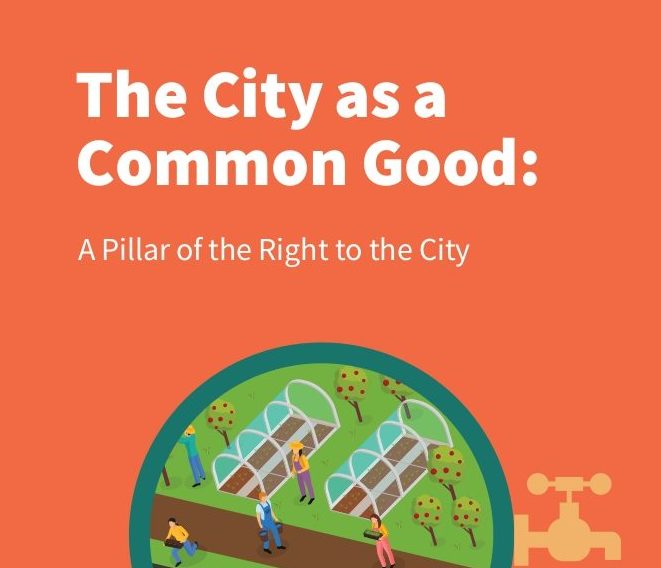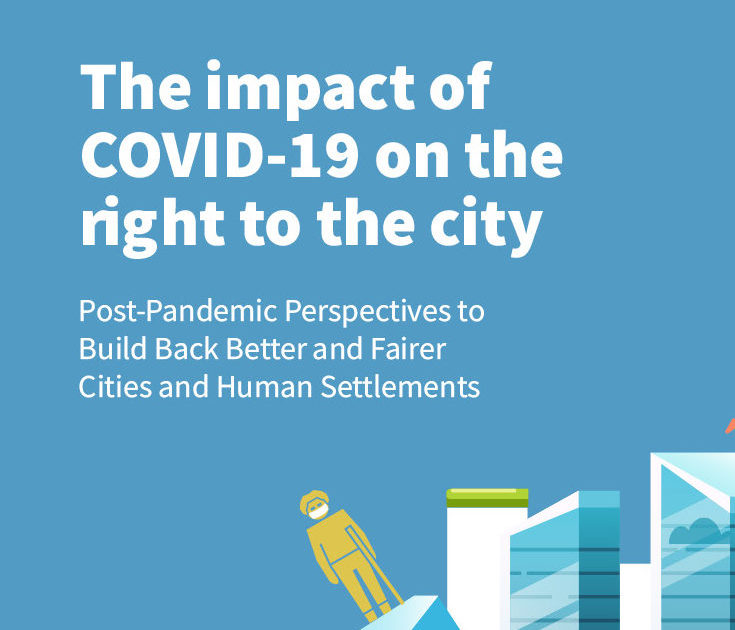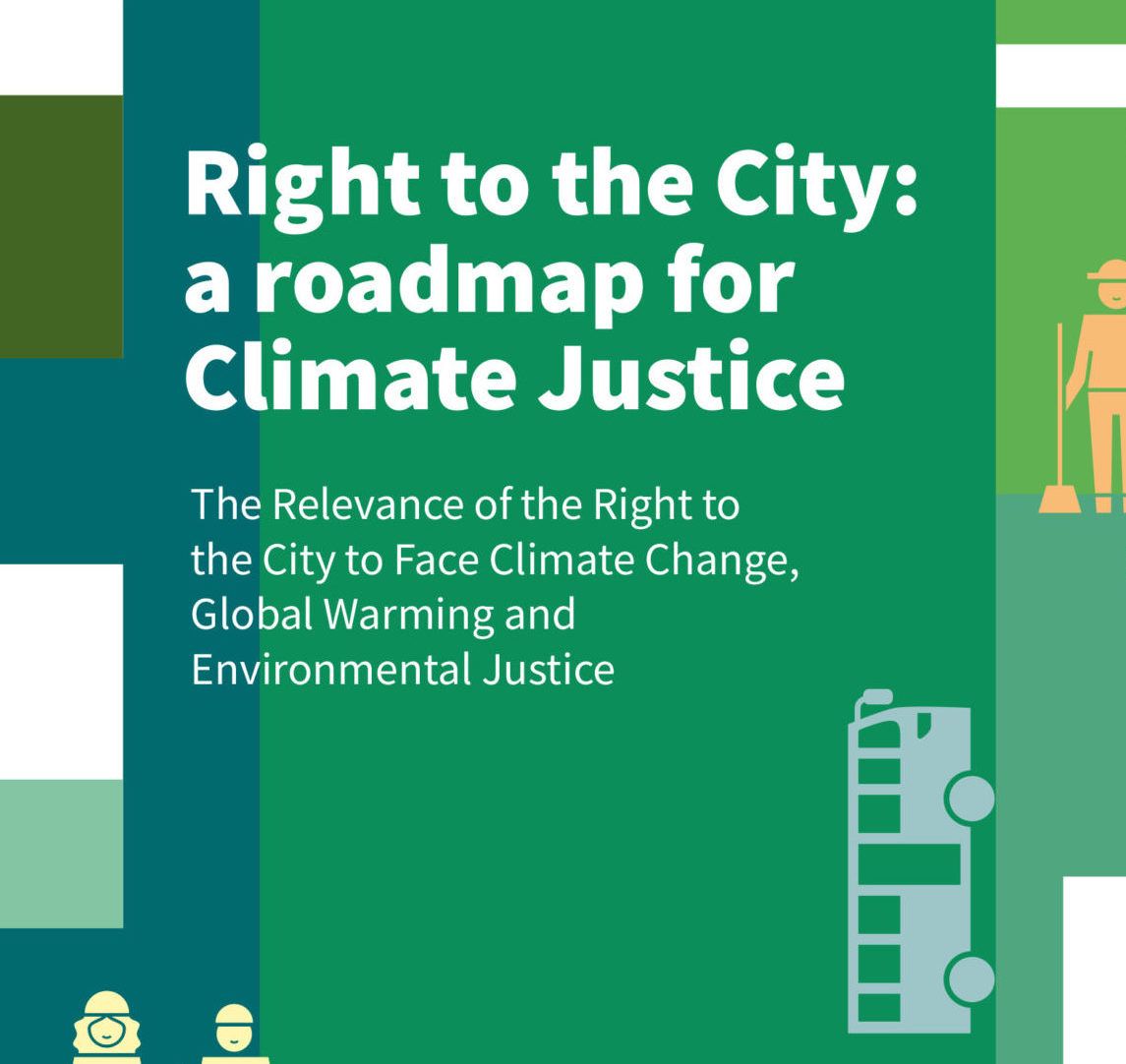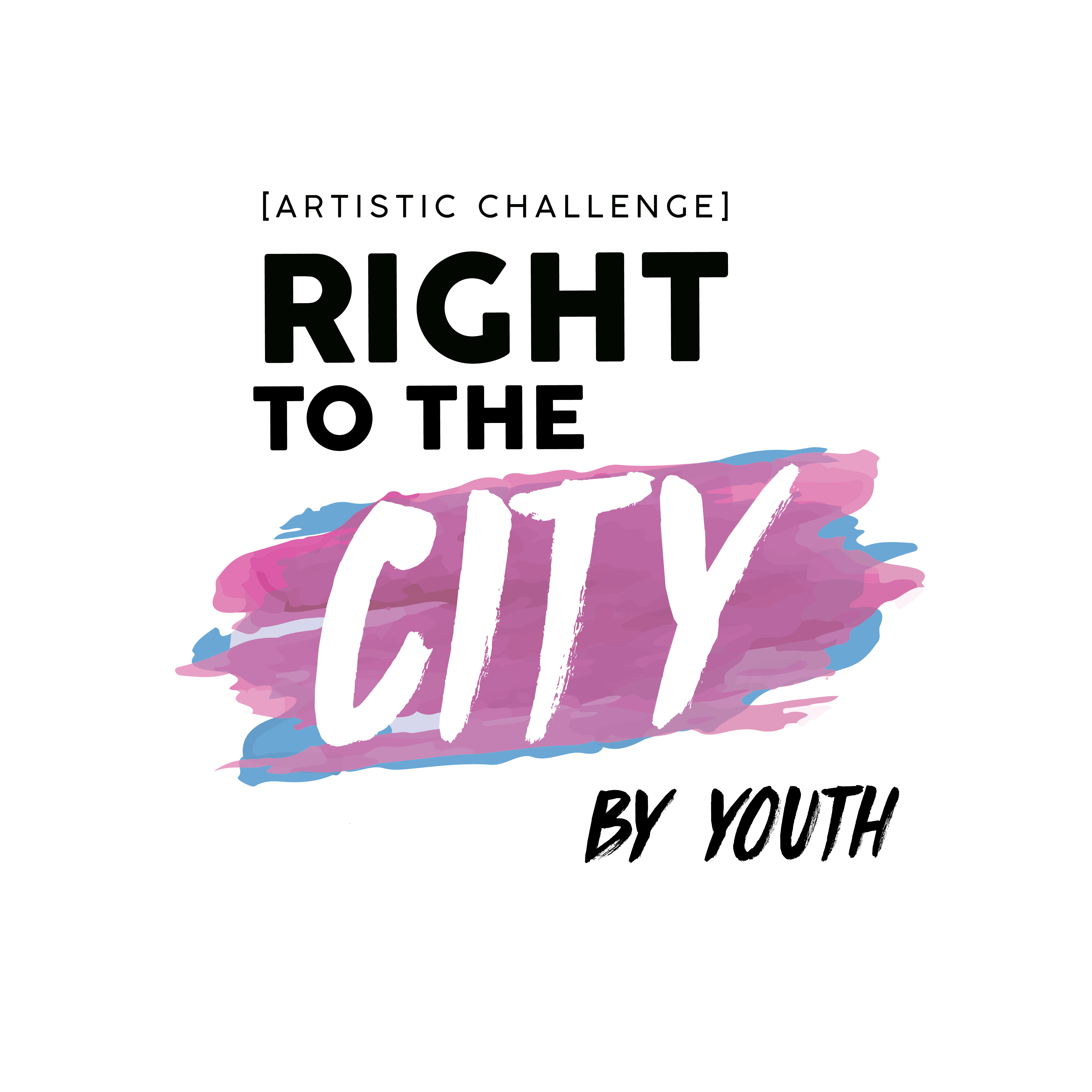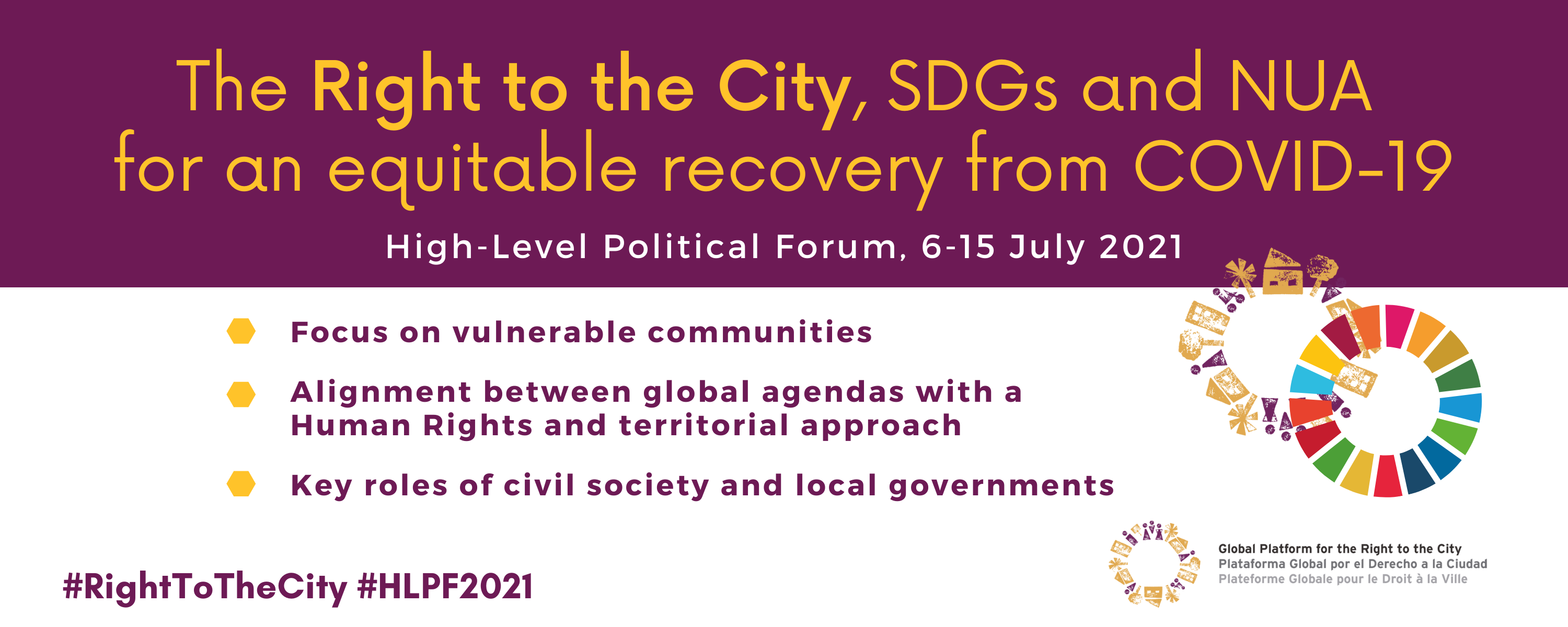
The GPR2C will participate in the 2021 High-Level Political Forum on sustainable development (6-15th July) to bring an urgent appeal to the United Nations and all international, regional, national and local institutions and civil society organizations to renew their commitments to the implementation of the Right to the City, SDGs and NUA for an equitable recovery from COVID-19, with a focus on vulnerable communities; strengthening the alignment between global agendas with a Human Rights and territorial approach; and shedding light on the key role of civil society and local governments in the recovery from COVID-19. The global impact of the COVID-19 pandemic has further exasperated long-standing economic, social, and territorial inequalities. The stark differences in the current responses by States around the world attest that the recovery process is deepening inequalities while relying heavily on outdated strategies that increase debt, exclusion, and exploitation of natural resources. To reverse rising inequalities, we claim the Right to the City paradigm: rooted on a Human Rights and territorial approach, centered on the most vulnerable and with civil society and local governments as key players.
We launch an urgent appeal to the United Nations and all international, regional, national and local institutions and civil society organizations to renew their commitments to the implementation of the Right to the City, SDGs and NUA for an equitable recovery from COVID-19
|
Relevant Right to the City Resources: |
Agenda
In order to achieve these goals, the GPR2C will be hosting and co-organizing the following events:
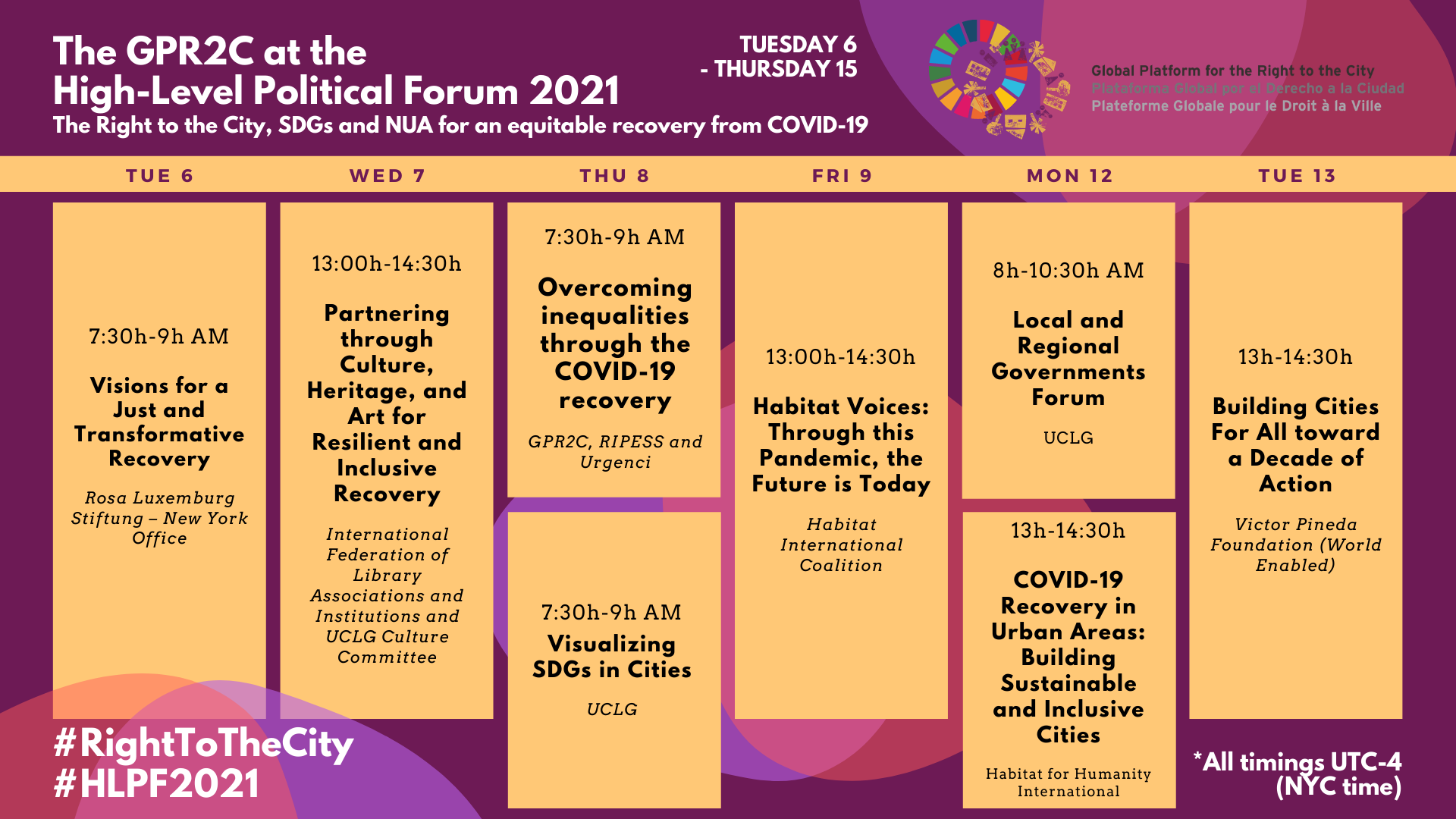
- July 6th, 07:30h-9h AM (NYC Time): Visions for a Just and Transformative Recovery. Organisers: Rosa Luxemburg Stiftung – New York Office.
- July 7th, 13:00h-14:30h (NYC Time): Partnering through Culture, Heritage and Art for Resilient and Inclusive Recovery. Organisers: International Federation of Library Associations and Institutions.
- July 8th, 07:30h-9h AM (NYC Time): Overcoming inequalities through the COVID-19 recovery: proposals from the Social and Solidarity Economy and the Right to the City. Organisers: GPR2C and RIPESS. [Click here to register].
The side-event will assemble a diversity of actors (governments, civil society organizations, international organizations, academia) to discuss the possibilities presented by the Social and Solidarity Economy in contributing to reducing inequalities under the reconstruction efforts through and after the COVID-19 pandemic. The discussion will focus on concrete examples from multiple domains (housing, food production and consumption, basic services and others) from a Right to the City perspective and under the framework of advancing the implementation of the 2030 Agenda, in particular concerning SDGs 10, 1, 2, 8, 3, 12 and 13 (among the ones to be discussed during the 2021 HLPF). Interpretation will be available in English and Spanish. 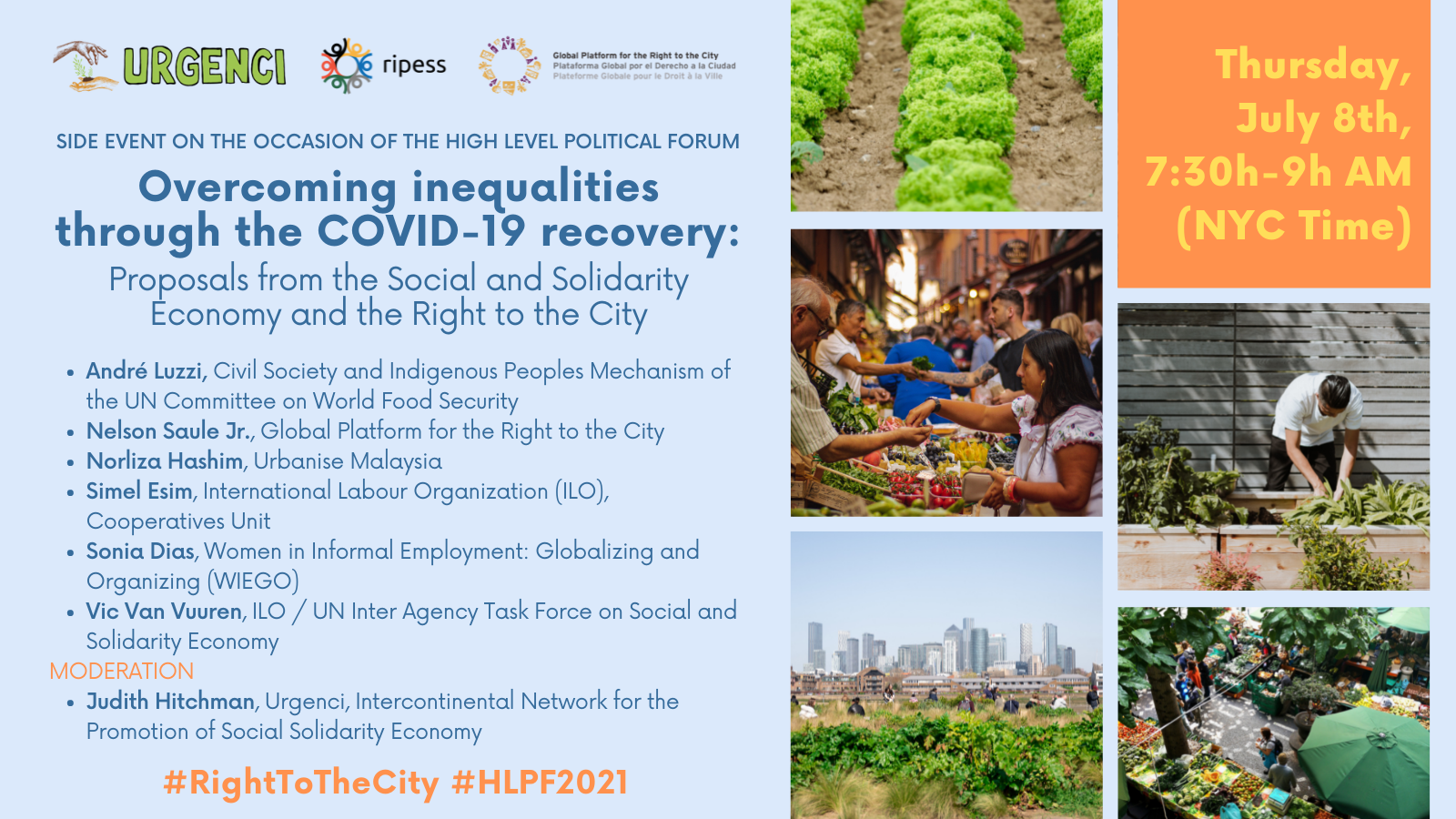
- July 8th, 07:30h-9h AM (NYC Time): Visualizing SDGs in Cities. Organisers: UCLG.
- July 9th, 13:00h-14:30h (NYC Time): Habitat Voices: Through this Pandemic, the Future is Today. Organisers: HIC. Details: TBC.
- July 12th, 13:00h-14:30h (NYC Time): COVID-19 Recovery in Urban Areas: Building Sustainable and Inclusive Cities. Organisers: Habitat for Humanity International. Details: TBC.
- July 13th, 13:00h-14:30h (NYC Time): Building Cities For All toward a Decade of Action. Organisers: Victor Pineda Foundation (World Enabled). Register here.
About the High-Level Political Forum 2021 The High-Level Political Forum (HLPF) is the core United Nations platform for the follow-up and review of the 2030 Agenda for Sustainable Development and its 17 Sustainable Development Goals. The meeting of the HLPF in 2021 will be held from Tuesday, 6 July, to Thursday, 15 July 2021, under the auspices of the Economic and Social Council. This includes the three-day ministerial meeting of the forum from Tuesday, 13 July, to Thursday, 15 July 2021. The HLPF will discuss ways to ensure a sustainable and resilient recovery from COVID-19 that puts us on track to realize the 2030 Agenda. Under the theme “Sustainable and resilient recovery from the COVID-19 pandemic that promotes the economic, social and environmental dimensions of sustainable development: building an inclusive and effective path for the achievement of the 2030 Agenda in the context of the decade of action and delivery for sustainable development”, the forum will center on key thematics for advancing towards more just and sustainable cities and human settlements, such as no poverty (SDG 1), zero hunger (SDG 2), decent work and economic growth (SDG 8), reduced inequalities (SDG 10), climate action (SDG 13) and others.





